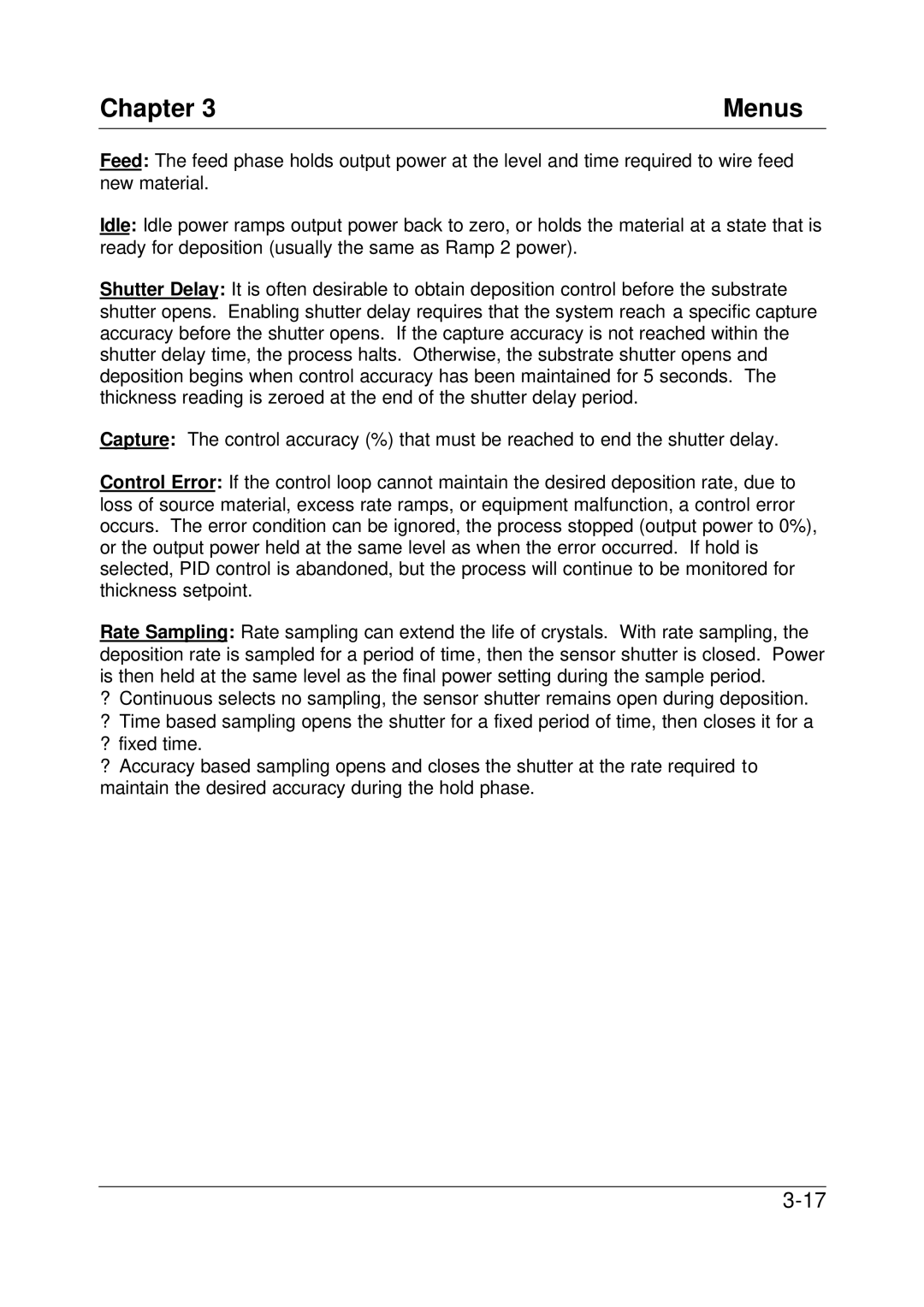Chapter 3 | Menus |
Feed: The feed phase holds output power at the level and time required to wire feed new material.
Idle: Idle power ramps output power back to zero, or holds the material at a state that is ready for deposition (usually the same as Ramp 2 power).
Shutter Delay: It is often desirable to obtain deposition control before the substrate shutter opens. Enabling shutter delay requires that the system reach a specific capture accuracy before the shutter opens. If the capture accuracy is not reached within the shutter delay time, the process halts. Otherwise, the substrate shutter opens and deposition begins when control accuracy has been maintained for 5 seconds. The thickness reading is zeroed at the end of the shutter delay period.
Capture: The control accuracy (%) that must be reached to end the shutter delay.
Control Error: If the control loop cannot maintain the desired deposition rate, due to loss of source material, excess rate ramps, or equipment malfunction, a control error occurs. The error condition can be ignored, the process stopped (output power to 0%), or the output power held at the same level as when the error occurred. If hold is selected, PID control is abandoned, but the process will continue to be monitored for thickness setpoint.
Rate Sampling: Rate sampling can extend the life of crystals. With rate sampling, the deposition rate is sampled for a period of time, then the sensor shutter is closed. Power is then held at the same level as the final power setting during the sample period.
?Continuous selects no sampling, the sensor shutter remains open during deposition.
?Time based sampling opens the shutter for a fixed period of time, then closes it for a
?fixed time.
?Accuracy based sampling opens and closes the shutter at the rate required to maintain the desired accuracy during the hold phase.
